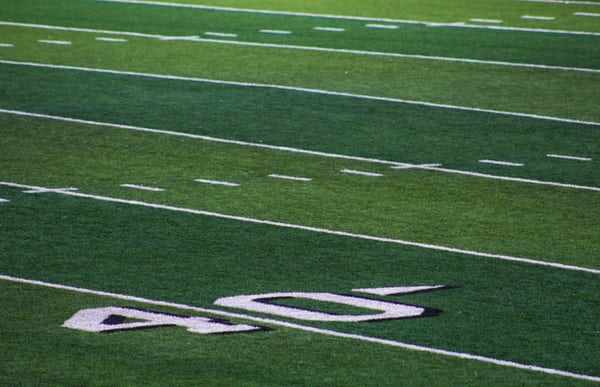
Few things are as sacred in Texas as high school football. Friday night lights aren’t just a game — they’re a community event, a social ritual, and often the beating heart of small-town life. But as the sports betting wave sweeps across the United States and gains momentum in the Lone Star State, it raises a critical question: What impact could sports betting have on Texas high school football culture?
While current laws do not allow betting on high school sports in the U.S., the rise of legal sports gambling platforms, fantasy leagues, and social betting trends is quietly shifting attitudes and behaviors. The implications both subtle and overt, deserve a closer look.
1. Betting Culture Seeps Into the High School Scene
Even without formal platforms offering odds on high school games, the culture of betting is expanding. Teenagers today grow up with constant exposure to sports betting ads, influencer promotions, and mainstream sports channels openly discussing betting lines. With online betting sites becoming more visible and accessible than ever, the influence of gambling culture is reaching younger audiences, even in spaces where betting remains technically off-limits.
In Texas, where high school football is almost as high-profile as college or pro sports, this exposure is sparking underground trends, such as informal wagers among fans or students. Friendly bets between parents, casual pools among classmates, and even fantasy-style leagues built around high school players have started popping up.
The danger here? It subtly shifts the focus from community pride and school spirit to money and personal gain, a potential crack in the foundation of what Texas high school football has always stood for.
2. Pressure on Student-Athletes Intensifies
One of the most alarming effects of sports betting’s expansion is the increased pressure it can place on young athletes. High school football players already carry the expectations of their families, schools, and communities. But when fans start putting money on game outcomes — even informally — the stakes feel much higher.
Imagine being a 17-year-old quarterback hearing whispers that your missed throw cost someone a few hundred bucks. Or being a parent approached by a neighbor disappointed over a loss not because of the team’s performance, but because of a lost bet.
This sort of environment can lead to anxiety, burnout, and a toxic culture of blame, particularly in communities where football is everything.
3. Concerns About Integrity and Fairness
One of the core reasons betting on high school sports remains illegal is the risk of corruption. Young athletes are far more vulnerable than professionals. They’re not paid, not protected by players’ unions, and often lack media training or adult-level oversight.
If sports betting becomes normalized in high school settings, even if it’s unofficial it opens the door to match-fixing, external influence, or coercion. A high school player offered money to “throw” a game might be tempted in ways that professional athletes with million-dollar contracts would not.
Texas prides itself on high school football excellence, and maintaining the integrity of the game is essential to preserving that tradition.
4. Changing the Friday Night Lights Atmosphere
One of the most cherished aspects of Texas high school football is the unifying spirit of Friday nights. Families gather in the bleachers, the band plays, cheerleaders rally the crowd, and communities bond over shared pride. It’s a wholesome environment that mixes tradition, competition, and joy.
But with sports betting entering the picture, even unofficially, the atmosphere risks becoming transactional. Instead of celebrating touchdowns for the love of the game, cheers might come with a side of personal profit or loss.
This shift may not be immediate, but over time, it can erode the pure, community-first feel of high school football nights in Texas.
5. Legal Loopholes and Grey Areas
Although no U.S. state currently allows betting on high school sports, online forums and offshore sites exist that provide workarounds. In Texas, where state-level resistance to gambling remains strong, some residents already use these channels for pro and college bets — and high school lines have been seen in gray markets.
As legislation around sports betting evolves, it’s crucial that lawmakers draw clear, enforceable lines to protect high school athletes and maintain the spirit of amateur competition.
6. What Can Be Done? Protecting the Culture
The challenge is not just legal — it’s cultural. Communities, school boards, and parents must recognize how the broader sports betting trend could quietly influence their local high school teams. Proactive steps could include:
- Education for students and families about the risks of gambling.
- Zero-tolerance policies for betting-related discussions or behavior on campus.
- Monitoring social media platforms for betting trends or informal pools involving school games.
- Working with local law enforcement and school officials to spot any illegal activity early.
By taking these precautions, Texas can safeguard the values that make high school football such a treasured tradition.
Final Thoughts
Texas high school football is more than just a sport — it’s a legacy. As sports betting becomes more mainstream, it’s essential for communities to stay vigilant and ensure that this cultural treasure doesn’t get diluted by gambling pressures. Protecting the purity of the game means protecting the athletes, the fans, and the Friday night lights that define so many Texas towns.
The impact of sports betting on Texas high school football may not be visible on the scoreboard, but it’s there — in attitudes, expectations, and emerging habits. Now is the time to preserve what makes this game special before the stakes change forever.




